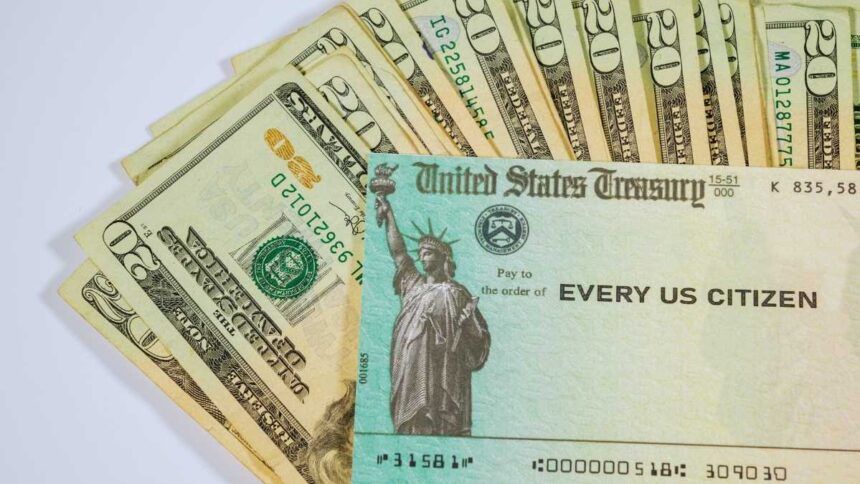A million Americans could soon see checks of up to $1,400 landing in their bank accounts or mailboxes.
Those eligible for the Recovery Rebate Credit based on their 2021 tax returns are set to benefit from a $2.4 billion IRS payout.
Stimulus checks have already been sent to millions of Americans.
Many individuals failed to claim this financial relief, prompting the IRS in late December to announce automatic payments for these missed credits.
The Recovery Rebate Credit is a refundable credit designed for Americans who did not receive or claim previous Economic Impact Payments, commonly known as stimulus checks.
IRS Commissioner Danny Werfel commented on the initiative, saying, “The IRS continues to work hard to make improvements and help taxpayers. These payments are an example of our commitment to go the extra mile for taxpayers.”
The move to distribute these funds came after the IRS identified that many eligible taxpayers had filed their tax returns but neglected to claim the credit.
Werfel further elaborated, “We realized that one million taxpayers overlooked claiming this complex credit when they were actually eligible. To minimize headaches and get this money to eligible taxpayers, we’re making these payments automatic, meaning these people will not be required to go through the extensive process of filing an amended return to receive it.”
Although most eligible individuals should have already received their checks or rebates, there are still some who have not.
The IRS will only issue payments to those whose records confirm eligibility and have not yet claimed the credit. This includes those who have not filed their 2021 tax returns. Eligible individuals must file their tax returns by April 15, 2025, to claim this money, regardless of their income level.
The credit amount is capped at $1,400 per person, though the exact amount can vary based on individual circumstances.
The first batch of these checks was dispatched by the IRS last month and should have arrived by now or will arrive in the coming days. Recipients will receive either a physical check or a direct deposit into the bank account listed on their most recent tax return, or to their recorded address. Additionally, an IRS letter will confirm the rebate.
In other news, the IRS has announced the start of the new tax season, accepting returns from January 27, 2025, and providing guidance on how to expedite refunds. Most refunds are expected to be issued within 21 days of filing. Proactive taxpayers have already taken advantage of IRS Free File, which opened on January 12, to ensure they receive their refunds as quickly as possible.
For more financial benefits, parents should check how they can claim payments up to $2,000 through a specific program.



